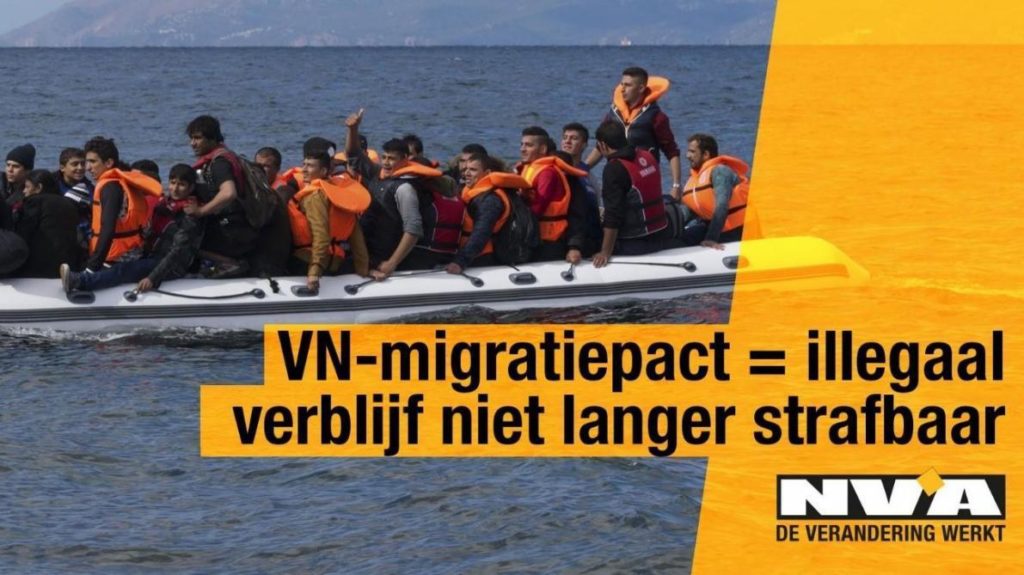As of the time of writing, the Belgian federal government is still standing. By the time readers come to this, there is a strong possibility that the government coalition that has existed until now will have dissolved. This morning, prime minister Charles Michel will approach members of the foreign relations committee to ask them to approve his attendance in Marrakesh in Morocco on 10 and 11 December to give Belgium’s vote to the United Nations’ Migration Pact. If that support is forthcoming, he will then go to a plenary session of parliament for their imprimatur.
That done – and opposition greens and socialists have promised their support so it likely will be done – the Flemish nationalists N-VA will probably have no other choice but to step down from the government.
The government has been teetering on the edge of collapse for some weeks now, since N-VA appeared to reverse their previous support for the Pact and become outright opponents. The party itself, and its front-man on this issue, the combative asylum and migration minister Theo Francken, came out with a dossier of 30 points to which it objects.
Those can be summed up under eight main headings: whether the Pact is legally binding; the way it accords universal rights to refugees and migrants; the question of national sovereignty; the grant of identity papers; the provision by states of information on migration; the question of legal migration; the duty of fair, informed and objective journalism free of discrimination; and the question of return of migrants to their homeland.
Matters came to a head yesterday, when a planned meeting of the prime minister with his vice-premiers was cancelled at the last minute to allow bilateral talks to go ahead. The trigger: the launch online of a new campaign by the N-VA against the Migration Pact, with the issue framed in the most inflammatory terms, including photos of women in burqa, Arab youths hanging around shopping centres and a rubber dinghy crossing the sea, filled with all young men.
The campaign provoked horror among other parties, and shock within the N-VA itself, with home affairs minister Jan Jambon describing it as a poor choice of photos and a mistake by the communications department. Peter De Roover, fraction leader for N-VA in the parliament, said, “The tone of the campaign is not the tone I myself have adopted, because we have no need of that to be convincing.” The campaign was later revealed to have been the brainchild of Joachim Pohlmann, the party spokesman considered to be one of Bart De Wever's right-hand men.
Vlaams Belang’s Filip De Winter, meanwhile, congratulated the N-VA on its campaign, which the party promptly withdrew, only to see Vlaams Belang adopt its style and images for its own opposition to the Pact.
The day closed with N-VA meeting in closed session, and not a word leaking out, while Charles Michel planned his appearances before the committee and before parliament. Later this afternoon will show whether, as expected, he gets the support he needs from members to go to Marrakesh, and what the reaction of N-VA will be. After that, the question will be, does the country go to the polls for the second time in as many months, or can Michel soldier on with a minority administration until elections are due in May?
Alan Hope
The Brussels Times

